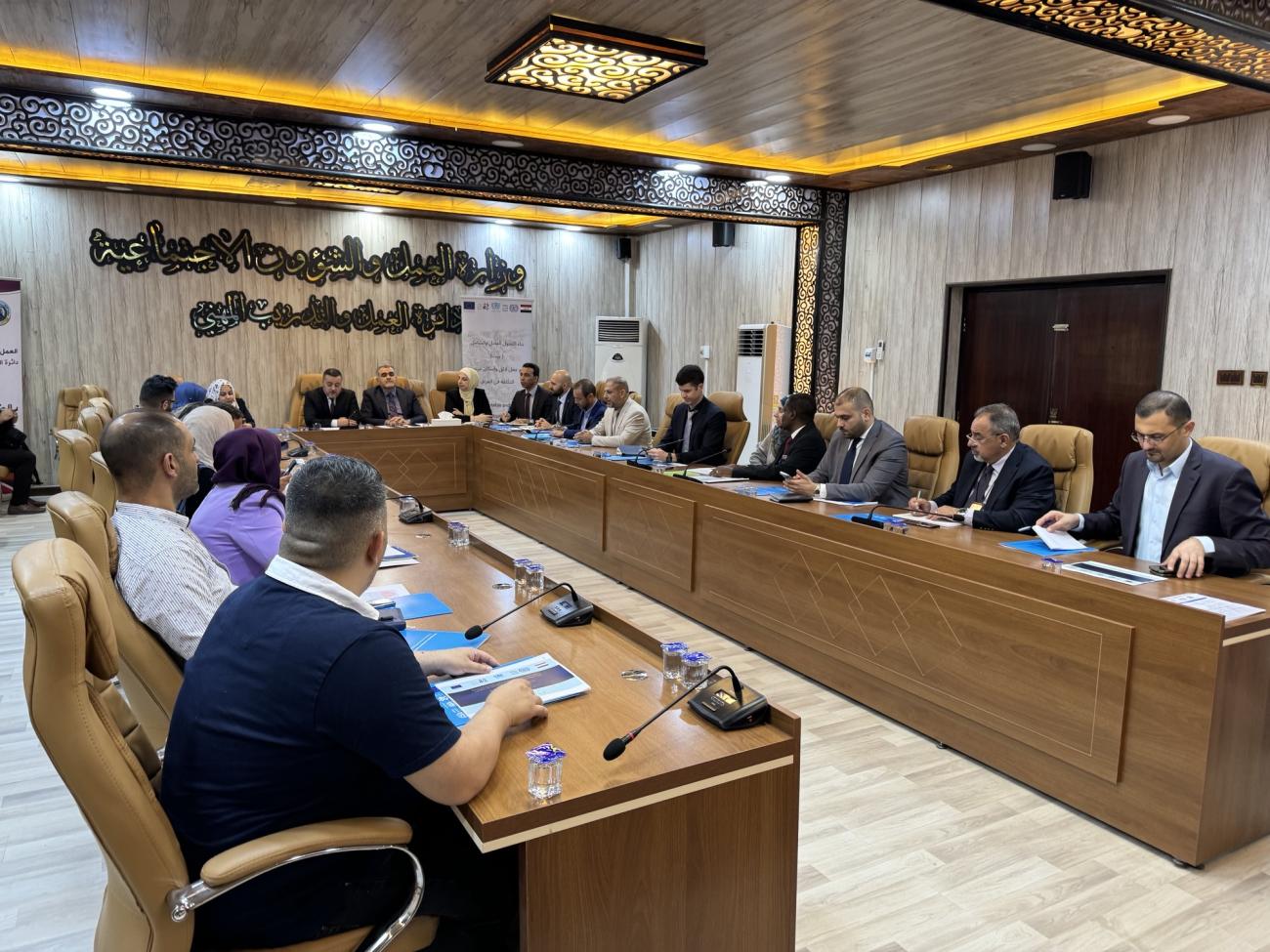EU-funded BEIT Project fosters decent work opportunities through transformative affordable green housing and improved business environment

The EU-funded Building Equitable and Inclusive Transformation (BEIT) Project
Implemented by three partnering UN agencies, aims to create a tangible model of how future sustainable development best practices can bolster housing, employment, and private sector development.
BEIT is a key project in the EU's cooperation with Iraq, implemented by the United Nations Human Settlements Programme (UN-HABITAT), the International Labour Organization (ILO), and the International Trade Centre (ITC). It aims to stimulate decent work opportunities for young women and men while addressing the urgent need for affordable housing, especially for lower-income and vulnerable people in Iraq. BEIT also aims to improve the business environment, by bolstering the construction and housing sector value chains, and boosting trade and services.
On June 12th, coinciding with the World Day Against Child Labour, the Ministry of Labour and Social Affairs hosted an introductory meeting for the BEIT project, which was attended by representatives from the EU Delegation to Iraq, the three partner UN agencies, key officials from the Ministry of Labour and Social Affairs and the Ministry of Planning.
In his opening remarks, Mr. Ali Al-Naseri, the Programme Manager at the Delegation of the European Union to Iraq, highlighted that the EU commends the increasing interest of the Government of Iraq in addressing the need for housing. He emphasized the EU’s commitment to making a positive impact in the housing domain through collaboration with UN-Habitat, ILO, and ITC. He further noted that the BEIT initiative promotes integrated approaches to affordable green housing in pilot areas, aiming to create jobs, empower SMEs, and mitigate climate change impacts in housing. Regarding the BEIT project’s objective of promoting decent work and job creation, Mr. Ali outlined the significance of MoLSA's efforts in reducing and combating child labour and emphasized its crucial role in improving the business environment through social dialogue. This will be achieved through supporting the implementation of relevant, green solution-driven vocational training to bridge the gaps between youth skills and labour market demands which will also be aligned with the public work program.
The Ministry of Labour and Social Affairs, represented by Mr. Osama Al-Khafagi, the Director General of the Labour and Vocational Training Directorate, emphasized that providing support to Iraq in designing and implementing construction sector focused public works programs which also increases the supply of affordable green housing is a groundbreaking initiative in Iraq that the ministry is eagerly willing to support. Mr. Osama Al-Khafagi appreciated the opportunities provided by the project and stressed that the BEIT project will be a significant step in creating decent job opportunities and enhancing workers' skills in green housing while also enhancing coverage of legal protections according to the national and international labour laws.
During the meeting, the United Nations partner agencies presented the project objectives and cooperation mechanisms with the Iraqi government and social partners. The BEIT programme partners presented the scope of interventions during which Dr. Maha Kattaa, on behalf of the UN implementing agencies (UN-HABITAT, ILO, and ITC), assured the meeting participants that the BEIT programme will improve the alignment of national policies and regulations with international labour standards in the housing sector, including eliminating child labour. Meeting participants were briefed on how the programme will also focus on increasing affordable green housing, addressing climate change through climate-smart green solutions and jobs, creating an enabling environment through regulatory reforms and support for MSMEs, and enhancing the influence of workers' and employers' organizations through social dialogue.
TheDirector Generals of the Ministry of Labor and Social Affairs, Mr. Osama Al-Khafagi, Mr. Mushreq Al Asadi, Mr. Mohammad Abdul Razaq and Mr. Raed Jabar Bahidh stressed that BEIT provides an opportunity to develop solid frameworks and guidelines for occupational safety and health, as well as labour inspection tools to enforce labour laws, which can be rolled out to support additional economic activities beyond the construction sector. The need to consider and include People with Disabilities (PWDs) in different programmatic aspects, when designing policies, and other interventions, was highlighted during the meeting. Participants also emphasized the importance of relying on the MoLSA Database to link job seekers with BEIT project job opportunities. They also emphasised the need to take into account the importance of employing women and people with disabilities to ensure their effective participation in the labour market. It was noted that the project would consider the various concerns, and that it would work closely with partners to achieve the project’s objectives of increasing affordable and sustainable housing, creating decent employment and stimulating private sector development.




